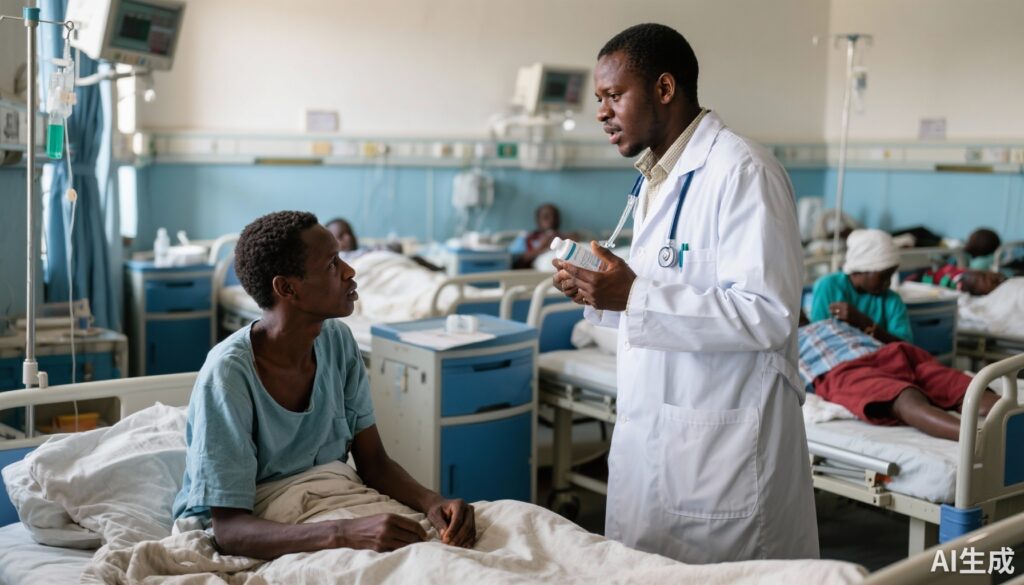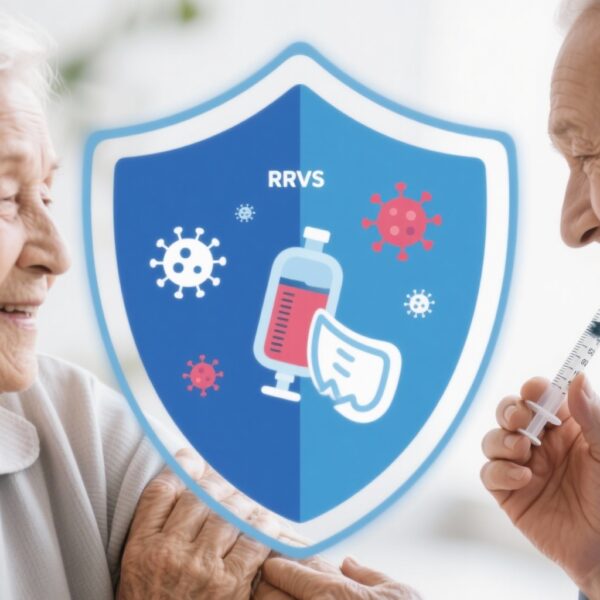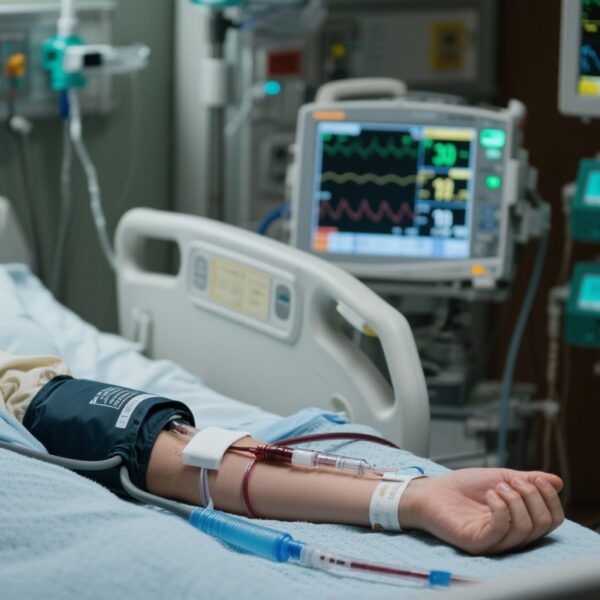Highlight
– Adjunctive low-dose glucocorticoid therapy reduces 30-day mortality in adults hospitalized with community-acquired pneumonia (CAP) in low-resource settings.
– The pragmatic randomized controlled trial conducted in 18 Kenyan public hospitals enrolled 2180 adults with CAP, showing a significant relative risk reduction of death.
– Safety profiles were similar between glucocorticoid recipients and those receiving standard care, with minimal glucocorticoid-related serious adverse events.
– These findings support integration of glucocorticoids into CAP management protocols in low-resource environments.
Study Background and Disease Burden
Community-acquired pneumonia (CAP) remains a leading cause of morbidity and mortality worldwide, particularly in low- and middle-income countries where healthcare resources and access to advanced diagnostics are limited. CAP is especially lethal in adults with underlying comorbidities and where timely antimicrobial therapy and supportive care are constrained. Adjunctive glucocorticoids have shown promise in reducing inflammatory lung injury and improving outcomes in severe CAP cases in high-resource settings, but their efficacy and safety in low-resource environments, where diagnostic precision and complication management may be more challenging, have not been definitively established.
Study Design
This pragmatic, open-label, randomized, controlled trial was conducted across 18 public hospitals in Kenya. Adult patients diagnosed clinically with CAP who did not have a clear indication for glucocorticoids were enrolled. Participants (n=2180) were randomized 1:1 to receive either standard care for CAP or standard care plus adjunctive oral low-dose glucocorticoids administered for 10 days. Standard care encompassed empiric antibiotics according to local guidelines and supportive therapies as indicated.
The primary endpoint was all-cause mortality at 30 days post-enrollment. Secondary endpoints included frequency and severity of adverse events and serious adverse events, with adjudication of glucocorticoid-related complications.
Key Findings and Results
A total of 1089 patients received adjunctive glucocorticoids and 1091 received standard care. The median age was 53 years (interquartile range, 38 to 72), with women comprising 46% of the cohort.
At day 30, 530 patients (24.3%) had died. Mortality was 22.6% (246 deaths) in the glucocorticoid group versus 26.0% (284 deaths) in the standard-care group. This corresponded to a hazard ratio of 0.84 (95% confidence interval, 0.73 to 0.97, P = 0.02), indicating a statistically significant 16% relative reduction in the risk of death with glucocorticoid adjunctive therapy.
Safety analysis revealed comparable frequencies of adverse events and serious adverse events between groups. Only 5 patients (0.5%) in the glucocorticoid arm experienced serious adverse events deemed related to glucocorticoid administration, suggesting a favorable safety profile in this population.
This trial’s findings are clinically and statistically robust, supporting the mortality benefit of glucocorticoid adjunct treatment in CAP within low-resource healthcare settings.
Expert Commentary
The trial’s pragmatic design enhances the generalizability of its findings to routine clinical settings in resource-limited regions, addressing a critical gap in evidence where diagnostic and supportive care capabilities may be constrained. The modest but significant mortality reduction aligns with prior evidence from high-resource settings, extending the applicability of steroids as adjunctive therapy. Importantly, the low incidence of steroid-related serious adverse events mitigates concerns that opportunistic infections or hyperglycemia might counterbalance benefits in populations with high infectious disease burdens.
However, as the trial was open-label, potential bias cannot be entirely excluded, though mortality is a hard endpoint less susceptible to such bias. Further research might elucidate optimal patient subgroups most likely to benefit, corticosteroid dosing regimens, and duration. This study also underscores the ongoing need to strengthen CAP diagnostic algorithms and supportive care in low-resource environments to maximize therapeutic outcomes.
Conclusion and Summary
This large pragmatic randomized trial provides compelling evidence that adjunctive low-dose glucocorticoid therapy improves 30-day survival among adults hospitalized with CAP in low-resource settings without increasing serious adverse events. These findings should inform clinical guidelines and healthcare policies to optimize CAP management globally, especially in settings with limited diagnostic and therapeutic resources. Integration of glucocorticoids into CAP protocols represents a cost-effective intervention with potential to reduce pneumonia-related mortality substantially.
Funding and Trial Registration
The study was funded by the Wellcome Trust and other contributors. Trial registration numbers are PACTR202111481740832 (SONIA PACTR) and ISRCTN36138594.
References
Lucinde RK, Gathuri H, Mwaniki P, et al. A Pragmatic Trial of Glucocorticoids for Community-Acquired Pneumonia. N Engl J Med. 2025 Oct 29. doi:10.1056/NEJMoa2507100. Epub ahead of print. PMID: 41159889.



